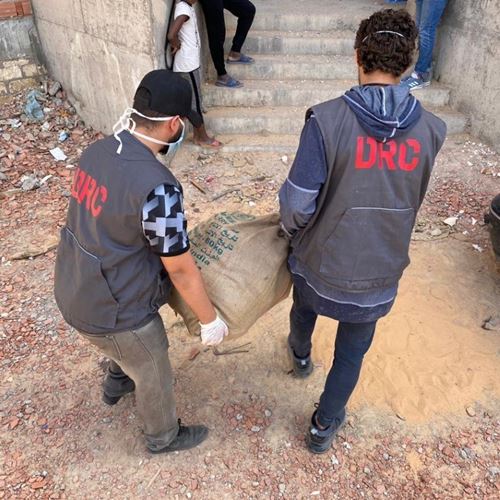
Yann
Faivre
Executive Director West & North Africa and Latin America
Libya has been adversely affected by conflict and protracted political crisis since 2011, driving people into displacement and affecting their well-being, living standards, and access to basic services.

Source: | UNHCR
EDPs: Refugees under UNHCR’s mandate
IDPs: Internally displaced persons
Asylum seekers: People whose claims for refugee status have not yet been determined
Stateless: People not considered as nationals by any State
HST: People living in Host Communities
OIP: Others in need of International Protection
OOC: Others of Concern
DRC forecasts are based on a machine learning tool that has been developed to predict forced displacement (IDPs, refugees and asylum seekers) at the national level 1-3 years into the future.
Libya is a destination and transit country for migrants, asylum seekers and refugees, many of whom face gaps in meeting their basic needs, exacerbated by a lack of documentation impacting their legal status, security of tenure and access to services.
Most are people from Sub-Saharan Africa, North Africa and the Middle East who are fleeing violence and persecution and seeking livelihoods opportunities to provide for themselves and their families.
Migrants and refugees are regularly discriminated against and subject to arbitrary and indefinite detention, gender-based violence, forced labour and exploitation, as well as denial of human rights.
DRC Libya works to support all people affected by conflict and displacement regardless of their status. We focus on the needs of vulnerable internally displaced people, returnees and host communities as well as migrants, refugees and asylum seekers.
DRC Libya’s integrated response approach in this complex environment is centred around:

Yann
Faivre
Executive Director West & North Africa and Latin America
Andrew
Aby Merat
Country Director